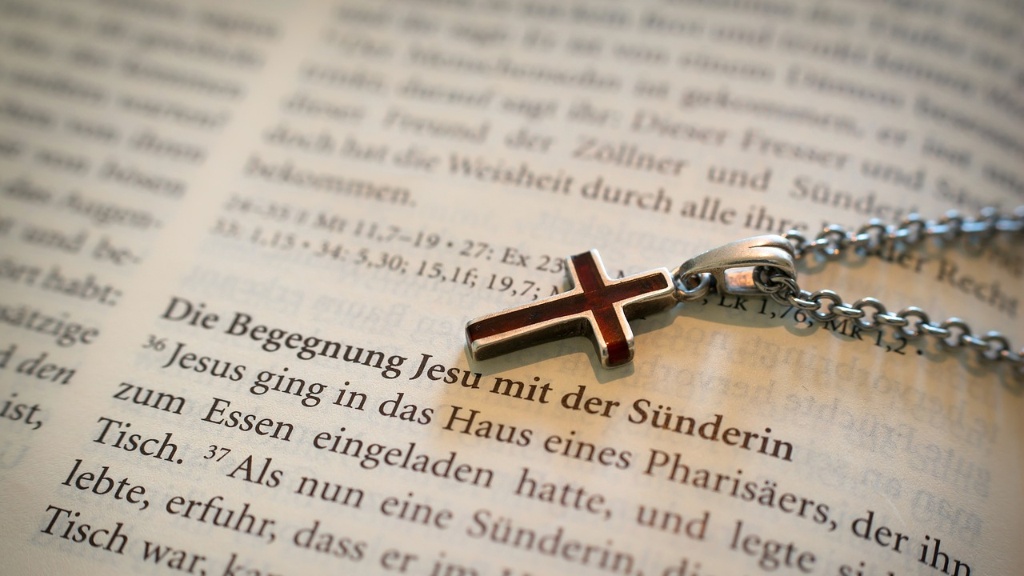The Bible is a major source of influence and guidance for the Christian faith, and the morality and beliefs of individuals strongly affect the view of abortion. Bible NIV (New International Version) views pregnancy as a divine creation, and that the expecting mother is to be respected as a carrier and supporter of human life. The Bible says that abortion is immoral and sinful and should not be taken lightly. Although there is no direct passage or verse written about abortion in the bible NIV, there are teachings, verses and accounts that hint towards the immorality of abortion.
The Bible stresses the value of every human life that has been created in God’s image, as it states in Genesis 1:27, “So God created mankind in his own image, in the image of God he created them; male and female he created them.” This emphasizes that all humans have been created in the likeness of God and are thus equally valuable. This implies that deliberate and intentional termination of a human life, such as through abortion, is incomparable to God’s will and is thus wrong according to the Bible.
The Bible speaks against the ‘shedding of innocent blood’ in numerous passages. Exodus 20:13 saying “You shall not murder’’, is sometimes interpreted to include abortion. The Bible also states in Jeremiah 1:5 “Before I formed you in the womb I knew you, before you were born I set you apart.” This verse states that God is the creator of life, and that deliberately choosing to abort a life goes against what God has ordained. The Bible doesn’t simply say do not murder, but ‘do not shed innocent blood’, implying that even if it’s done unintentionally it is still wrong and against God’s will.
Proponents of abortion often cite Psalm 139:16, “Your eyes saw my unformed body. All the days ordained for me were written in your book before one of them came to be,” suggesting that children in the womb aren’t fully formed in a ‘human’ image. Furthermore, Luke 1:41-44 provides a counter-argument that John the Baptist leapt in his mother’s womb while Mary was in the presence of Jesus. It could be argued that since John was identifiable as a child that the fetus of any mother is capable of movement and should be viewed as a child.
Feminist Perspective
The Bible does not explicitly speak on the topic of abortion. Women, however, are uniquely situated when navigating the moral ambiguity associated with this topic. In the Bible, producing life is constructed as part of a women’s divine role, as it reads in Genesis 3:16 “In pain you shall bring forth children:’’. It implies that woman’s role is to bring forth life, taking away that life can be considered to be going against these words.
At the same time, however, the Bible does discuss the importance of the physical, mental, and emotional well-being of women, recognising that she can take away her own life if she is unable to cope with the burden of pregnancy. Proverbs 12: 4 states “An excellent wife is the crown of her husband; but she who shames him is as rottenness in his bones.” This could be interpreted to mean that if a wife is unable to cope with a pregnancy, her husband should act responsibly and respect her feelings.
Actress and UN Women Envoy, Emma Watson has addressed the topic of abortion in the Bible in a speech given at the United Nations headquarters in 2014, stating “I think it is right that women be involved on my side of the conversation … I think it’s right that socially, we have a conversation about it. It’s a conversation we need to have.”
Legal Perspective
The United States Supreme Court decision of 1973, in Roe v Wade, states that the constitutional right to privacy includes the right to choose to have an abortion with certain restrictions. According to the decision, states must recognize the rights of individuals and provide access to abortion legalities. There have been several amendments to the law since then, which seek to regulate the medical inspection during and after pregnancy. This has legitimized abortion in the United States and in other countries across the world.
Despite this, some Christians still oppose abortion on religious grounds. This moral conflict leads to the current debate on whether or not to legalize abortions, given the complex moral, legal, and religious implications. On one side, those who are against abortion will point to the biblical passages mentioned above in support of their view that it should remain illegal. Those who are more accepting of abortion will cite the undeniable fact that unplanned pregnancies can lead to serious health issues, financial strain, and other negative consequences.
The divide between those who accept or reject abortion has been the source of much contention, and the relevance of the bible in the decision-making process remains a controversial topic.The Pope and other Catholic leaders have been vocal in their convictions against abortion, even in situations where the mother’s health is at risk. This is, however, an issue of debate, as there is no set, clear-cut guidelines defining what the Bible and the church have to say about the morality of abortion.
Abortion in Other Religions
The discussion surrounding abortion is not unique to the Christian faith. The majority of religions, including Judaism, Buddhism and Islam, also consider abortion to be immoral and unethical. For example, in Islam, abortion is generally prohibited after four months of pregnancy, as it is believed that the soul enters the body at this point. All of these faiths emphasize the importance of human life, and the reverence of the unborn baby.
However, there is one exception to the rule; Hinduism. It is an ancient religion with no central authority, and therefore, views on abortion vary widely depending on the individual’s moral and religious beliefs. Hindus are taught to respect all life, so the opinion on abortion tends to be that it is an operation that should be performed only in extreme cases.
The Kashmir Shaivism sect of Hinduism is the most accepting of abortion. It advocates a respectful attitude towards the foetus, but allows abortions in cases where the mother’s mental, emotional, physical and financial wellbeing is at risk. Other sects take a more conservative stance, allowing abortions only in cases where the mother’s life is in danger.
Psychology Behind Abortion
Studies on the psychological spin-offs of having an abortion have shown that women are capable of weighing the pros and cons of both choices, and may even feel relieved after the procedure. Many women who undergo an abortion say that they are grateful for the decision at the time, acknowledging both the positive and the negative aspects. The consensus of study on the psychological affects of abortion is that most women do not regret their decision, and are able to live with it for the rest of their lives.
In addition to this, studies also show that a majority of women who undergo an abortion do not suffer any long-term mental health consequences. It has been found that, while some women may struggle with feelings of guilt, sadness, and regret soon after, it is usually short-lived and does not persist over time.
Therefore, it can be concluded that women are capable of making informed and responsible decisions when it comes to abortion. It should be left up to the individual to decide if they would like to keep the child, not just according to religious beliefs, but also considering their own unique circumstances.
Religion and Politics
Religious beliefs underpin many discussions about abortion and impacts how laws, policies and religious institutions address this subject. Pro-life activists, backed by religious institutions, seek to protect the unborn, insofar as recognizing the fetus as a human life and opposing the taking away of such a life. This has been reflected in the kind of political agenda that exists around the debate and in the judicial system in many countries.
Many people argue that pro-life laws, policies and campaigns are dictated by religious values, and are actively opposed to a woman’s right to choose an abortion. Such laws have been in place in many US states as well as in other countries around the world. In Argentina, a draft bill was presented that sought to allow abortions in cases of rape and incest, but was met with strong resistance from pro-life religious groups.
Despite strong opposition from pro-life religious groups, many countries have passed laws allowing abortions in cases where pregnancies present risk to the mother’s health or arise out of rape and incest. In Germany, abortions are allowed up to the 12th week of pregnancy and are free for women under 22 years of age. France also allows abortions in extreme or risky cases up to the 14th week of pregnancy.
Impact on Society
Abortion has far-reaching implications for society at large. The discussion surrounding abortion has been the source of heated debate and has caused tension and conflict in families, communities, and countries. In places with restrictive abortion laws, women may be forced to seek illegal and unsafe abortions, risking their health and lives in the process. In countries where abortion laws are more liberal, there has been a growing trend of sex selective abortions and other related practices that are often seen as detrimental to the social order.
However, there are also a number of positive outcomes associated with the acceptance of abortion. By legalising abortion, governments and medical institutions can ensure that women receive quality healthcare and support in their decision making. This can lead to improved standards of living, better gender equality, and broader access to healthcare, especially for women who are unable to access or afford other forms of contraception.
Ultimately, the decision of whether or not to have an abortion should be the prerogative of the individual in question. While religious scriptures and belief systems often dictate one’s outlook on the matter, it is important to examine both sides of the argument and make an informed decision based on medical, legal, social and cultural context.





